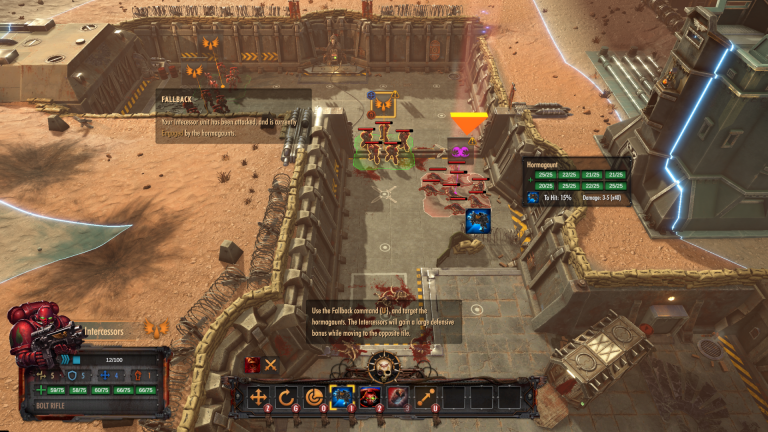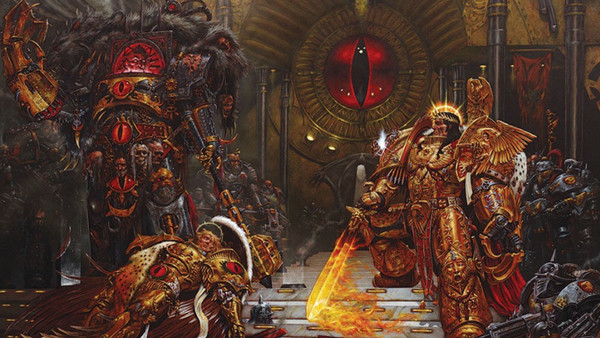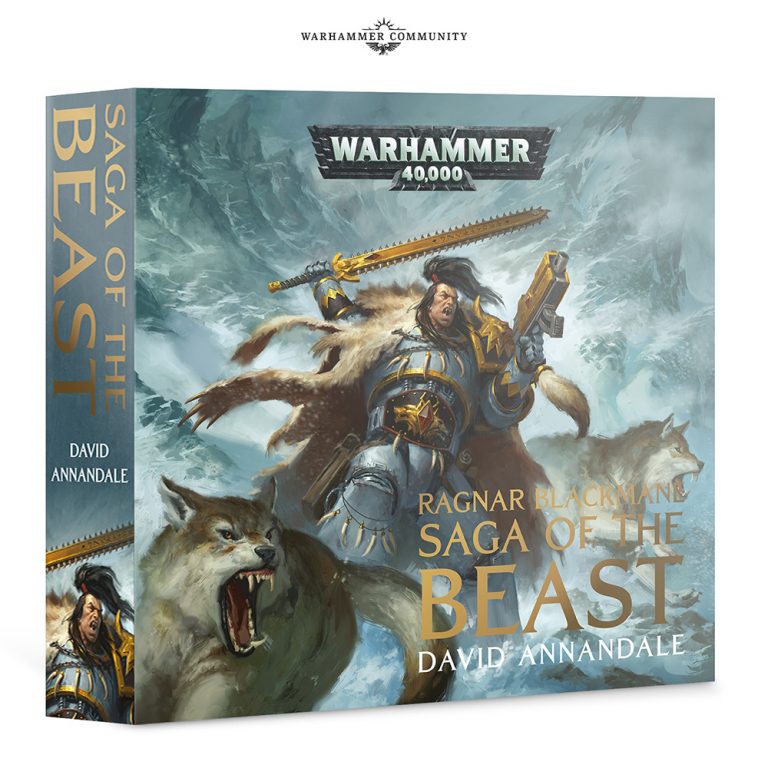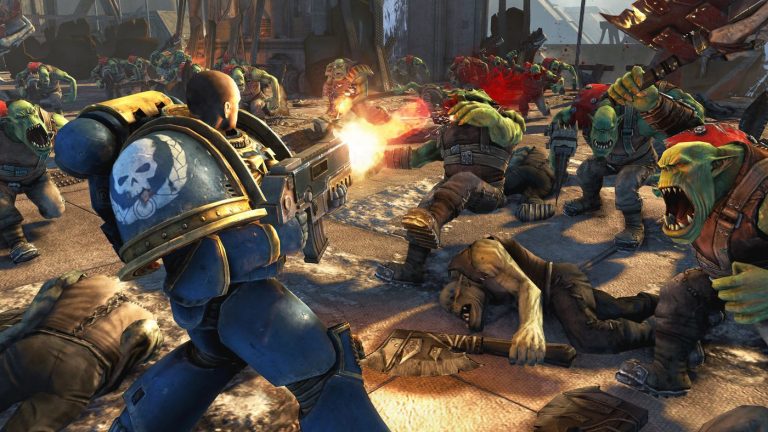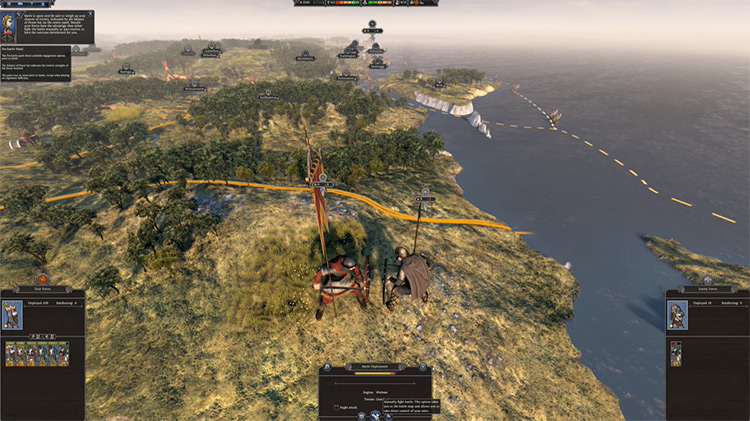Is Warhammer 40k A Genre?
If you’ve ever delved into the world of Warhammer 40k, you know just how vast and immersive it can be. But have you ever wondered if it’s more than just a game? Is Warhammer 40k a genre in and of itself? Let’s dive into this fascinating topic and explore the depths of the Warhammer 40k universe.
Warhammer 40k is not your average tabletop game. It’s a rich tapestry of science fiction, fantasy, and dystopian elements woven together to create a captivating setting. With its intricate lore, diverse factions, and epic battles, Warhammer 40k has become more than just a game – it’s a genre in its own right. From the grim darkness of the far future to the larger-than-life characters and epic conflicts, Warhammer 40k has captured the hearts and imaginations of millions of fans worldwide. But what exactly makes it a genre? Let’s explore further and uncover the unique characteristics that define Warhammer 40k as a genre unto itself.
Warhammer 40k is not a genre, but rather a tabletop miniature wargame created by Games Workshop. It falls under the science fiction and fantasy genres, blending elements of futuristic warfare and fantastical creatures. The game is set in a dystopian universe, known as the Warhammer 40,000 universe, where various factions battle for supremacy. With its rich lore and extensive range of miniatures, Warhammer 40k has garnered a dedicated fanbase worldwide.

Is Warhammer 40k a Genre?
Warhammer 40k, also known as Warhammer 40,000, is a popular tabletop wargame that has captured the hearts of millions of players worldwide. With its rich lore, diverse factions, and strategic gameplay, Warhammer 40k has become a cultural phenomenon. But is Warhammer 40k a genre in and of itself? Let’s delve deeper into the world of Warhammer 40k and explore its unique characteristics.
The Origins of Warhammer 40k
Warhammer 40k was first created by Games Workshop in the late 1980s as a spin-off of their original Warhammer Fantasy Battle game. Set in a dystopian future, Warhammer 40k is a science fiction universe where humanity fights for survival against various alien races and supernatural entities. The game combines elements of strategy, role-playing, and storytelling, creating an immersive experience for players.
Warhammer 40k’s setting is a grimdark universe, characterized by a sense of constant warfare, moral ambiguity, and a bleak outlook for humanity. It draws inspiration from various sources, including classic science fiction literature, such as Frank Herbert’s “Dune” and Isaac Asimov’s “Foundation” series, as well as tabletop wargames like “Traveller” and “Starship Troopers.”
The Gameplay and Factions of Warhammer 40k
The gameplay of Warhammer 40k revolves around players commanding armies of miniature models on a tabletop battlefield. Each player builds their army by selecting units from different factions, each with its own unique strengths, weaknesses, and playstyles. The game is played using dice rolls and a set of rules that govern movement, combat, and other interactions between units.
One of the defining aspects of Warhammer 40k is its vast array of factions. From the stalwart Space Marines to the insidious Chaos forces, each faction offers a distinct playstyle and narrative. The factions are further divided into sub-factions, allowing players to tailor their armies to specific themes or strategies. This variety and depth contribute to the game’s longevity and appeal.
The Genre-Bending Nature of Warhammer 40k
While Warhammer 40k is often referred to as a tabletop wargame, it transcends traditional genre boundaries. It incorporates elements from multiple genres, including science fiction, fantasy, horror, and even elements of cosmic horror. The game’s universe encompasses a wide range of storytelling tropes and themes, making it difficult to categorize it as a single genre.
At its core, Warhammer 40k is a narrative-driven experience. The rich lore and extensive backstory provide a fertile ground for storytelling, allowing players to create their own narratives within the established universe. This aspect of the game, combined with its strategic gameplay, makes it a unique hybrid of tabletop wargaming and role-playing.
The Community and Cultural Impact of Warhammer 40k
Warhammer 40k has cultivated a passionate and dedicated community of players and enthusiasts. The game’s complex rules, deep lore, and intricate miniatures have inspired countless hobbyists to engage in painting, modeling, and converting their own armies. This creative aspect adds another layer of depth to the Warhammer 40k experience.
Furthermore, Warhammer 40k has expanded beyond the tabletop. It has spawned numerous video games, novels, comics, and even a successful line of collectible card games. Its influence can be felt in popular culture, with references and homages appearing in movies, TV shows, and music.
In conclusion, while Warhammer 40k may have originated as a tabletop wargame, its genre-defying nature sets it apart. It combines elements of strategy, role-playing, and storytelling, creating a unique and immersive experience for players. Warhammer 40k’s rich lore, diverse factions, and dedicated community have made it a cultural phenomenon that continues to captivate fans around the world. Whether you’re a seasoned player or a newcomer to the hobby, Warhammer 40k offers an expansive and engaging universe to explore.
Key Takeaways: Is Warhammer 40k a Genre?
- Warhammer 40k is not a genre, but a tabletop wargame set in a science fiction universe.
- It combines elements of fantasy, science fiction, and military genres.
- Players can engage in strategic battles with armies of futuristic soldiers, aliens, and powerful beings.
- The game offers a rich lore and storytelling, providing players with immersive experiences.
- Warhammer 40k has a dedicated fanbase and has spawned various spin-offs, novels, and video games.
Frequently Asked Questions
Warhammer 40k, also known as Warhammer 40,000, is a popular tabletop game set in a dystopian science fiction universe. It is not a genre itself, but rather a specific game within the broader genre of science fiction.
1. What is the genre of Warhammer 40k?
Warhammer 40k falls under the genre of science fiction. It is set in a dark and grim future where humanity is locked in an endless war against various alien races. The game combines elements of futuristic technology, space exploration, and tactical warfare.
In this universe, players take on the role of commanders leading armies of futuristic soldiers, tanks, and monstrous creatures in strategic battles. The game features a rich lore with intricate storylines, diverse factions, and complex characters, all of which contribute to the immersive science fiction experience.
2. Is Warhammer 40k a role-playing game?
No, Warhammer 40k is not a role-playing game (RPG) in the traditional sense. While it does involve players assuming the roles of commanders and making strategic decisions, it is primarily a tabletop wargame. Players engage in tactical battles on a tabletop battlefield using miniatures and rulesets provided by the game.
However, Warhammer 40k does have a role-playing counterpart called “Warhammer 40,000: Dark Heresy.” This spin-off RPG allows players to delve deeper into the universe, taking on the roles of characters exploring the grim darkness of the 41st millennium. So, while Warhammer 40k itself is not an RPG, it has expanded into the RPG genre with dedicated game systems.
3. Are there other games within the Warhammer 40k universe?
Yes, the Warhammer 40k universe has expanded beyond the tabletop wargame. There are various video games, board games, and even novels set within the Warhammer 40k universe. These games explore different aspects of the lore, allowing players to experience the universe from different perspectives.
Some popular video game adaptations include “Dawn of War,” a real-time strategy game, and “Space Marine,” a third-person shooter. Board games like “Warhammer 40,000: Kill Team” offer a more compact and focused experience, while the novels provide in-depth storytelling and exploration of the universe’s vast lore.
4. How does Warhammer 40k compare to other science fiction franchises?
Warhammer 40k stands out among other science fiction franchises due to its unique blend of dark, grim, and gothic elements. Unlike more optimistic and utopian visions of the future, Warhammer 40k presents a dystopian universe where humanity is constantly under threat and engaged in brutal warfare.
Additionally, Warhammer 40k has a distinct visual style characterized by intricate miniature models and artwork. The lore is incredibly detailed and expansive, with a vast array of factions, characters, and storylines. This depth and complexity contribute to the enduring popularity of the franchise among science fiction enthusiasts.
5. Can Warhammer 40k be considered a subgenre of science fiction?
While Warhammer 40k is not a genre itself, it has certainly carved out its own niche within the broader science fiction genre. Known for its dark, gritty, and violent themes, it has become synonymous with the subgenre of “grimdark” science fiction.
Grimdark science fiction emphasizes a harsh and unforgiving world, where moral ambiguity, violence, and despair prevail. Warhammer 40k perfectly embodies these characteristics, presenting a universe where hope is scarce, and survival is a constant struggle. As such, it has attracted a dedicated following of fans who appreciate its unique take on the science fiction genre.
WHAT IS WARHAMMER? A guide for newcomers.
Final Thoughts
After exploring the vast universe of Warhammer 40k, it becomes clear that it is not just a game or a single genre, but it encompasses multiple genres and elements that make it a truly unique and captivating experience. Warhammer 40k is more than just a tabletop wargame; it is a rich tapestry of science fiction, fantasy, dystopia, and military strategy all rolled into one.
With its expansive lore, intricate world-building, and diverse factions, Warhammer 40k offers something for everyone. Whether you are a fan of intense battles, deep storytelling, or immersive role-playing, this universe has it all. From the grim darkness of the 41st millennium to the heroic tales of Space Marines and the intricate politics of the various factions, Warhammer 40k provides endless possibilities for exploration and enjoyment.
So, whether you are a seasoned veteran or a newcomer to the world of Warhammer 40k, strap yourself in and prepare for an epic journey through a universe like no other. Embrace the grim darkness, unleash your imagination, and immerse yourself in the countless adventures that await you in this sprawling and captivating universe. Warhammer 40k is not just a game; it is a gateway to a whole new world of excitement and wonder. Join the ranks and experience the thrill of this genre-defying phenomenon.

